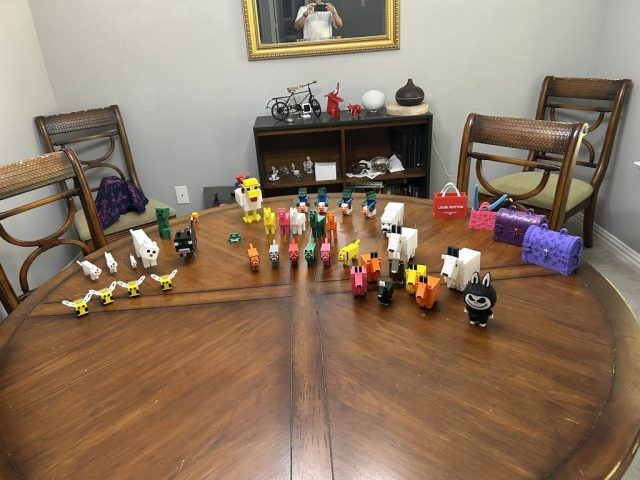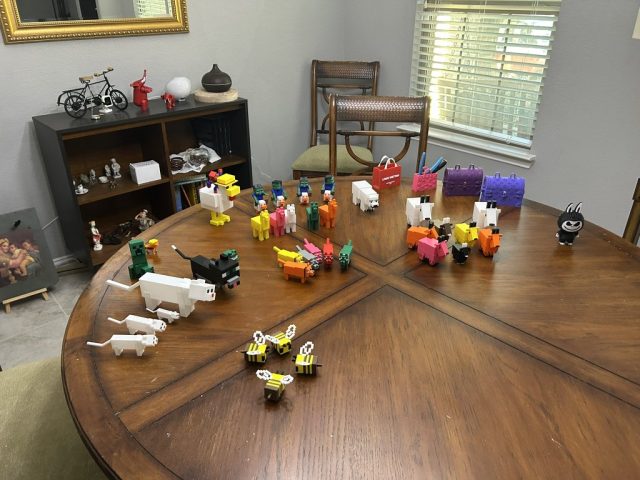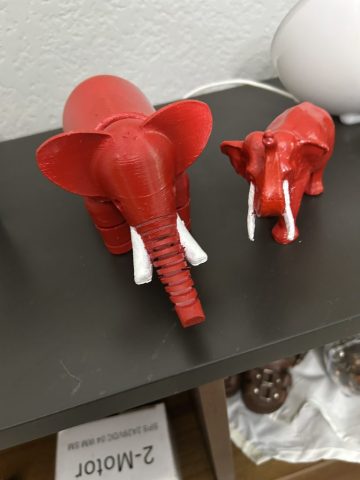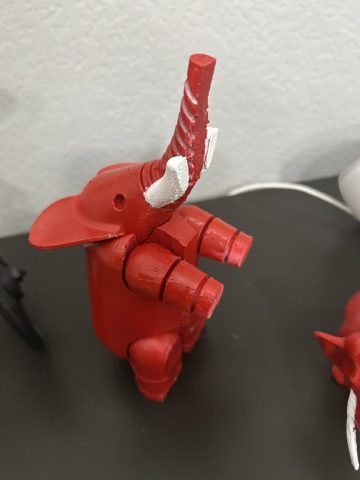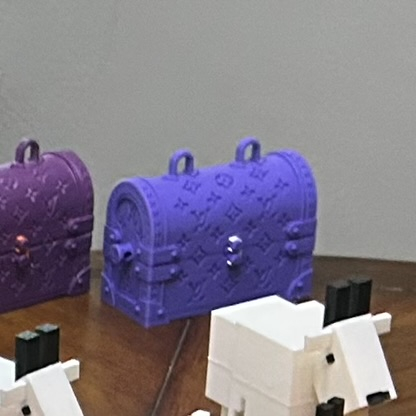Author: admin
Census Calculator
Garland Joseph
This program will input a 4-digit year and then relate the generations of your ancestors to the particular United States Census
#Garland R. Joseph | garland.joseph@gmail.com
#October 10, 2025
# This program will input a 4-digit year and then relate
# the generations of your ancestors
# to the particular United States Census
import math
from datetime import datetime
def calculate_ancestral_census(birth_year, generations, generation_length=30):
"""
Calculate ancestral census information based on birth year and generations.
Args:
birth_year (int): The birth year of the starting person
generations (int): Number of generations to calculate back
generation_length (int): Average years per generation (default: 30)
Returns:
list: List of dictionaries containing ancestral census data
"""
# Get current year for validation
current_year = datetime.now().year
# Validate input
if birth_year < 1700 or birth_year > current_year:
raise ValueError(f"Birth year must be between 1700 and {current_year}")
if generations < 1 or generations > 10:
raise ValueError("Generations must be between 1 and 10")
if generation_length < 20 or generation_length > 40:
raise ValueError("Generation length must be between 20 and 40 years")
results = []
for gen in range(1, generations + 1):
# Calculate ancestor's approximate birth year
ancestor_birth = birth_year - (gen * generation_length)
# Calculate first census where they would appear as a child (age 0-9)
# Using the formula: ROUNDUP((birth_year + 1) / 10) × 10
first_census = math.ceil((ancestor_birth + 1) / 10) * 10
# Calculate their age in that census
age_in_census = first_census - ancestor_birth
# Determine relationship label
if gen == 1:
relationship = "Parent"
elif gen == 2:
relationship = "Grandparent"
elif gen == 3:
relationship = "Great-Grandparent"
else:
relationship = f"{gen-1}x Great-Grandparent"
# Add historical context notes
notes = []
if first_census < 1790:
notes.append("Before first US census")
elif first_census < 1850:
notes.append("Pre-1850: Only head of household named")
elif first_census == 1890:
notes.append("1890 Census mostly destroyed by fire")
elif first_census == 1950:
notes.append("1950 Census is most recently available")
elif first_census > 1950:
notes.append("Census not yet publicly available (72-year rule)")
results.append({
'generation': gen,
'relationship': relationship,
'approx_birth_year': ancestor_birth,
'first_census': first_census,
'age_in_census': age_in_census,
'notes': notes
})
return results
def display_results(birth_year, generations, generation_length, results):
"""Display the results in a formatted table."""
print("\n" + "="*80)
print(f"ANCESTRAL CENSUS CALCULATOR")
print(f"Starting Birth Year: {birth_year}")
print(f"Generations to Calculate: {generations}")
print(f"Generation Length: {generation_length} years")
print("="*80)
print(f"\n{'Gen':<4} {'Relationship':<20} {'Approx Birth':<14} {'First Census':<12} {'Age':<6} Notes")
print("-" * 80)
for result in results:
notes = "; ".join(result['notes']) if result['notes'] else ""
print(f"{result['generation']:<4} {result['relationship']:<20} {result['approx_birth_year']:<14} {result['first_census']:<12} {result['age_in_census']:<6} {notes}")
def main():
"""Main function to run the ancestral census calculator."""
print("ANCESTRAL CENSUS CALCULATOR")
print("This program calculates when your ancestors would appear in US census records.")
print("Default generation length is 30 years. US Censuses occur every 10 years (1790, 1800, etc.)")
print("-" * 60)
try:
# Get user input
birth_year = int(input("Enter the starting birth year (e.g., 1962): "))
generations = int(input("Enter number of generations to calculate (1-10): "))
use_default = input("Use default 30-year generation length? (y/n): ").lower().strip()
if use_default == 'y':
generation_length = 30
else:
generation_length = int(input("Enter generation length in years (20-40): "))
# Calculate results
results = calculate_ancestral_census(birth_year, generations, generation_length)
# Display results
display_results(birth_year, generations, generation_length, results)
# Additional information
print("\n" + "="*80)
print("IMPORTANT NOTES:")
print("- Censuses before 1850 only listed the head of household by name")
print("- The 1890 US Census was mostly destroyed by fire")
print("- Census records are publicly available after 72 years (1950 is latest)")
print("- These are approximations - actual family patterns may vary")
print("="*80)
except ValueError as e:
print(f"Error: {e}")
except Exception as e:
print(f"An unexpected error occurred: {e}")
# Example usage function
def run_example():
"""Run an example with predefined values."""
print("Running example for birth year 1962, 5 generations:")
results = calculate_ancestral_census(1962, 5)
display_results(1962, 5, 30, results)
if __name__ == "__main__":
# Uncomment the next line to run an example instead of interactive input
# run_example()
main()
The Best Guitar Player in Texas
by gRj
They say you’re dying—
but the morning doesn’t know it,
still spilling gold through your window,
still begging for your rusty guitar.
You count your breaths like old guitar strings,
yet somehow—
there’s always one left
to hum the chorus of Wild Horses,
one more to pluck the notes
that slip like loose change
through your fingers,
but never quite vanish.
And if death is a door,
it’s stuck halfway open,
and you’re neither coming nor going—
just leaning on the jamb,
tuning that old six-string
to a key only the wind understands.
Men who are done with living
don’t name the birds at their feeders.
They don’t laugh when the rain
soaks through their boots,
or grin at the nurse
who calls them honey
and means it.
You measure time in coffee stains,
in snapped strings and calloused thumbs,
in the way your voice,
roughened to gravel,
still finds the high notes—
a hand groping for the light switch
in a familiar dark.
Dedicated to George in Austin
George’s Song
by gRj
For the man who carried home on his back,
and hummed his way through the dark—
You were a wildfire in a body
that wouldn’t burn slow—
lungs like paper lanterns,
still glowing where the wind tore holes.
The woods knew you first:
your tent a cathedral of rain,
your bicycle a steel-winged bird
that never left the ground.
(How many winters did you pedal,
wheels spinning hymns between your ribs,
chain rusted with the weight
of all the roads you couldn’t stay on?)
Then—miracles in small type:
four walls, a key, a car
that started when you turned it.
You rolled the windows down
just to feel the world move with you,
not past.
Now the emphysema comes
like a thief you’ve learned to name.
You laugh around the oxygen hose,
pluck your guitar till your fingers stiffen,
sing till the notes fray
into something too honest
to call music.
Oh, George,
they’ll never understand
how a man who’s been untethered
so long can strum the light
clean through the cracks—
your voice a stubborn knot
holding the sky to the tree line,
holding the road to its promise:
Forward. Always forward.
The Weave Remembers
There is a thread that runs through all,
Unseen, but older than the stars—
A sacred weave of soul and soil,
Of whispered truths and ancient scars.It binds the humble to the high,
The farmer’s hand to banker’s pen,
The child’s cry to prophet’s sigh,
The now to all that’s ever been.Some pull the thread for selfish weight,
Unraveling others to climb fast—
They weave with gold and trade in fate,
And think the fabric will not last.But spirit does not sleep for long,
Nor turn its face from what is done.
The silent loom, though slow, is strong,
And justice spins for everyone.The ones who feast while others break,
Who laugh while stealing from the poor—
Will find their riches turn to ache,
Their doors unguarded, threadbare, torn.For every soul mistreated here,
A knot is tied in hidden space.
And when the wind of truth draws near,
The thread will find its rightful place.So take what’s yours, but not what’s owed,
And walk the earth with open hands.
The weave remembers every load—
And rights the loom by its commands.-gRj
Nothing New Under the Sun
by gRj
In a world where lies are laws: no regime, however oppressive, can erase the truth in the hearts of the people. The Party may control the present, but we, the free, control the past—and from it, the future.
The regime thrives not by defeating its enemies, but by playing upon the differences between the people—keeping them isolated in their struggles, so they never see the power they could have if they stood united.
In the Civil War, the powerful used race to divide, convincing the poor to fight for the wealth of the few. The rich knew: as long as they could keep poor whites focused on differences, they would never see the true enemy—the system that oppressed them all.
During the Great Depression, economic hardship affected millions of Americans. However, politicians and business leaders, particularly during the 1930s, used scapegoating to divert blame for the economic crisis. Immigrants, African Americans, and other marginalized groups were often blamed for stealing jobs or resources.
During the Cold War, the U.S. government, under figures like Senator Joseph McCarthy, stoked fear of communism to suppress political dissent and labor movements. The government used anti-communist hysteria to label left-wing activists, labor leaders, and intellectuals as unpatriotic or even traitors, forcing many into silence or submission.
The War on Drugs has been another major example where race and class divisions were manipulated to create and maintain a criminal underclass. Although drug use is prevalent across all socioeconomic groups, law enforcement disproportionately targeted Black and Latino communities, leading to mass incarceration, particularly under the 1980s Reagan administration.
From the post-Reconstruction period to today, voter suppression has been a tactic used to limit the political power of certain groups, particularly African Americans, immigrants, and the poor. Practices like poll taxes, literacy tests, and modern voter ID laws disproportionately affect marginalized communities, making it harder for them to vote.
The labeling of political and economic systems such as capitalism, socialism, and communism has often been a method for framing debates in a way that fosters polarization. Instead of focusing on the actual outcomes of these systems, the labels themselves are used to define the value of the system—either as a shining example of human progress or as a dystopian nightmare.
Cold War Rhetoric: During the Cold War, for example, the U.S. government framed communism (especially the Soviet model) as an existential threat to freedom, democracy, and human dignity, while capitalism and the American system were depicted as the ultimate form of freedom and prosperity. This binary of “good vs. evil” made it easier to dismiss the complexities of both systems and keep citizens in a constant state of ideological opposition.
Political Polarization: In many countries, political elites use the terms “socialist” and “communist” as a form of fearmongering. In the U.S., for example, calling someone a “socialist” can evoke a visceral negative reaction, even if their policies or ideas do not align with traditional socialist thought. Conversely, in other parts of the world, capitalism is painted as the enemy of the people, blamed for economic inequality and exploitation.
George Orwell in 2025
by gRj
There are those who see the world unravel,
who feel the weight of truth in their bones.
They reach for others—not out of duty,
but because the soul remembers we are not meant to stand alone.
There are those who see as well,
but turn away.
They build walls from fear and profit,
calling it wisdom.
Their eyes are mirrors of their own desire.
And then—
there are the many caught between,
not heartless, but hidden from the light.
Told what to fear, taught whom to blame,
they march to songs not of their making.
This is the shape of our time:
The caring,
the cunning,
and the carried.
But lines are not cages.
A whisper of truth, a flicker of love,
and even the deepest sleeper can wake.
-by gRj
The Atlas of Her
by gRj
They say you didn’t love them right—
(the ones who left you
with three hungry moons
orbiting your ribs,
their tidal pulls
gnawing your name to bone.)
You fed them with your fingertips—
split your last loaf seven ways,
hid the crusts in your own palm
while they learned to chew your silence
into blame.
(No one taught you how to spin
gold from an empty fridge,
but you did.
No one praised the way your back
became their bridge—
only warned it’d break.)
Now their voices, grown and sharp,
carve verdicts in the kitchen air:
You should’ve—
Why didn’t you—
We needed—
(They don’t remember
how the rent clung to your throat like a noose,
how the bus fare in your pocket
was always theirs to lose,
how their fathers’ taillights
were the only gifts they sent.)
Mother of the unappeased,
your hands still mend their wounds—
though they hand you the knife
and call it love.
Your crime?
The sky you gave them
had no father-shaped clouds,
and they’ve spent their lives
howling at the sun
for casting shadows.
dedicated to P in Austin
Every Petal Has Its Price
by gRj
She loved in dollar signs,
each act of kindness
a receipt waiting to be signed.
Look, her hands would say,
as they pressed bills into palms—
See how the light catches
the halo of my giving.
A year of her love
was a year of ledgers:
flowers tallied against apologies,
dinners weighed by their cost,
never by the silence
that followed the first bite.
(Even the poor knew her name—
how she’d linger after handing them a twenty,
waiting for the God bless you
like a comma in her script.)
Oh, R*
your heart is vast as a department store,
bright and full of price tags.
You donate to feel the echo
of your own echo—
Saint R*, so generous, so kind—
while the rest of us starve
for something you can’t buy:
a love that doesn’t
keep change.
-Catharsis
Here’s a Good One: EZ-PC
(from Here’s a Good One: Pencil-Pushers).
I’m the last Unix Engineer standing, managing the Frankensteinian infrastructure of three merged companies under a Texas State entity. Picture this: Tandems, Unix, Windows servers, imaging systems, and Xerox high-speed printers—a tech jamboree working in harmony to churn out claims across Texas. While I’m not the only Engineer here, most of my colleagues are Windows administrators. And let’s be real—Windows admins are basically power users with fancier job titles (everyone not named Willie Wilson).
This operation processes 100,000 pages of claims every day. The Tandem systems are the crown jewels, fine-tuned by wizards who write software so low-level it’s practically whispering to the hardware. Sub-second response time? Achieved. These machines are so good, they’d laugh in binary at your gaming PC.
Now, imagine a massive data stream starting with these Tandems, zipping through Windows servers (trying their best not to lag), passing an imaging server, and ending with a Xerox beast spitting out hundreds of thousands of letters daily. It’s beautiful when it works. But when it doesn’t? That’s where the story gets spicy.
Case in point: a Xerox field engineer called me—not one of the dozens of Windows admins—about an NFS mount issue on a Windows PC hooked to a high-speed Xerox printer. Why me? Your guess is as good as mine (maybe not, I’m betting it’s Unix).
It took me ten minutes to spot the problem. The PC was running Windows Home edition. Yes, the tcp/ip stack was having a full-blown existential crisis because it’s not designed for enterprise anything. When I asked the engineer why he was using Windows Home, he admitted the company didn’t send him a PC, so he grabbed an EZ-PC from Frye’s. Frye’s! I half-expected him to say he installed the OS off a cereal box prize.
Let’s just say there are too many things wrong with that picture for me to unpack without a drink.
So, what was the point of the PC attached to the high-speed Xerox printer? The PC is used to augment the formatting of the final output produced on the Xerox. In other words, it’s a simple way to add a signature. Once the letters are printed, the staff would cart the final letters to a department that would actually scan the letters before they were mailed. This was unnecessary since the final images could have been offloaded to repository and saved.

